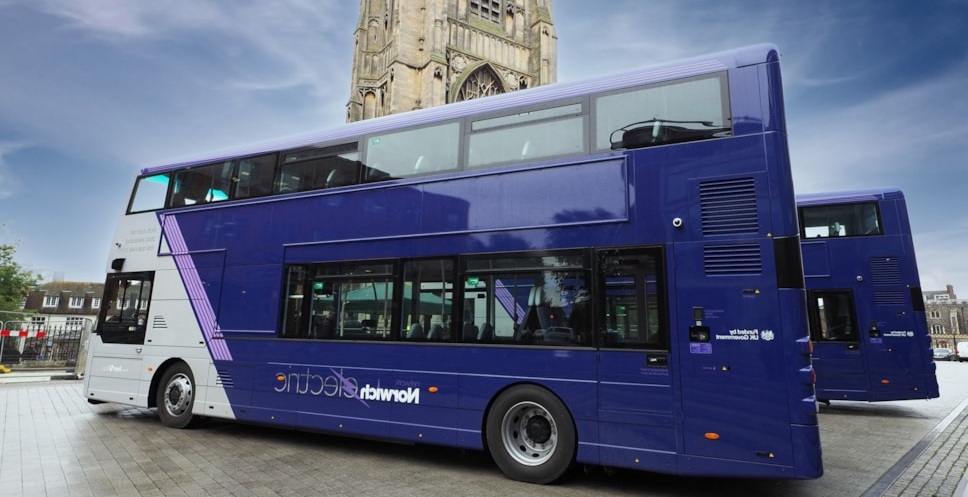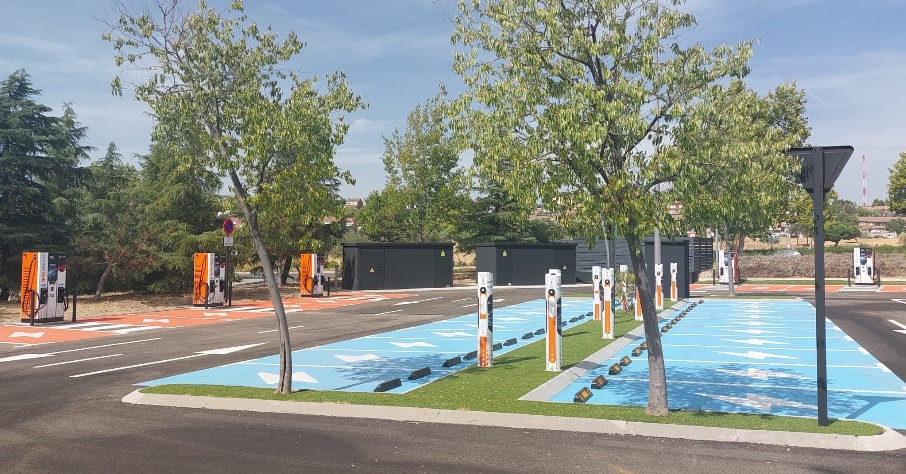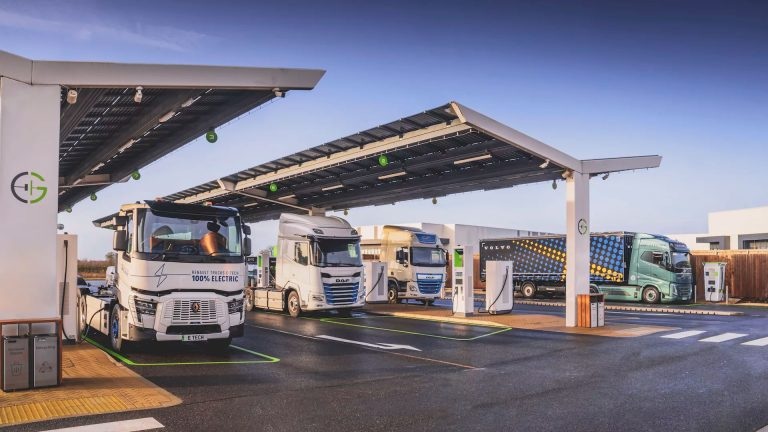Norfolk County Council and First Bus have joined forces to introduce 24 new electric double-decker buses to the county, along with supporting infrastructure at two key depots.
Adding to the current fleet of 76 units already operating this is another major step forward in the county’s journey toward greener public transport.
The 13.8 million pounds investment—8.9 million pounds of which is funded by First Bus and the remainder supported by Norfolk’s Bus Service Improvement Plan grant—will see the new vehicles operating in Great Yarmouth and Norwich by Autumn 2026.
Councillor Graham Plant, cabinet member for highways, infrastructure and transport, says: “This is a landmark moment for public transport. We’ve been working closely with operators to support their electrification plans, and I’m delighted that our partnership with First Bus has secured this significant investment for Norfolk.”
“We know from feedback that passengers in Norwich are already enjoying the benefits that come with travelling on an electric vehicle – and now even more people will get to enjoy the enhanced passenger experience with these new buses operating in Great Yarmouth and on routes out to Mulbarton and Horsford,” he adds.
The Caister Road depot in Great Yarmouth will be upgraded to support ten e-buses serving service 8, connecting James Paget Hospital to Caister via the town centre.
Meanwhile, the Vulcan Road depot in Norwich will accommodate 14 vehicles for routes 28, 36, 37, and 38, linking communities in Thorpe Marriott, Horsford, Mulbarton, and Ives Road with Norwich city centre.
Piers Marlow, Managing Director of First Bus East of England, states: “We’re really pleased that more people across Norfolk will soon be able to enjoy the many benefits of electric buses, and we’re proud to be working with Norfolk County Council to make this possible.”
Construction at the Great Yarmouth depot is scheduled to begin later this year, with all vehicles expected to be in service by Autumn 2026.
READ MORE
-
Monta CEO reveals strategy: “We aim to run the entire charging network autonomously with AI”
Several companies are investing in creating platforms for human teams to manage EV charging. But Monta argues that this model does not scale—it is costly, slow, and prone to errors. Why should full automation with AI be the way forward?
-
Hellonext supplies charging equipment for the largest EV hub in the Iberian Peninsula
The facility, developed by Galp and BMW Group at Intu Xanadú (Madrid), features 116 charging points and a total capacity of over 3.6 MW.
-
GRIDSERVE begins building its first public electric HGV charging hubs
These new locations form the foundation of the Electric Freightway – a nationwide programme designed to give fleet operators access to high-power public charging designed specifically for electric HGVs.










